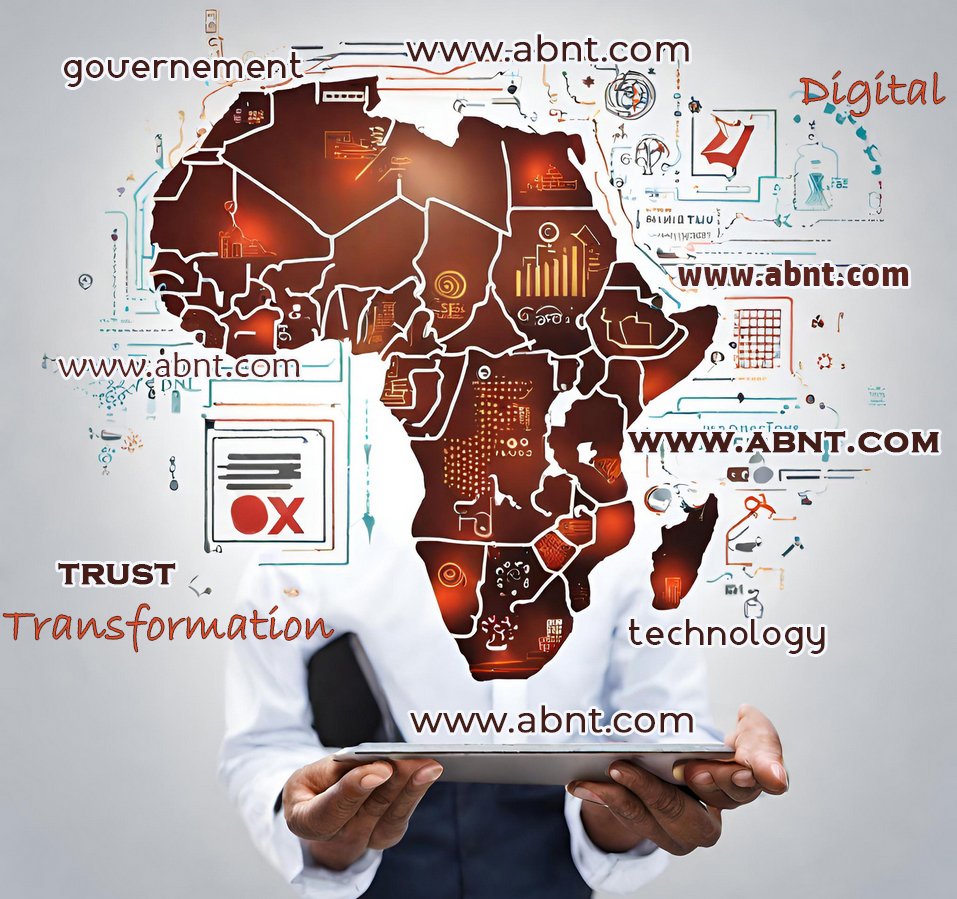Trust in Technology and Government: A Cornerstone for Africa’s Digital Transformation
Abstract
For Africa to fully embrace the transformative potential of digital technologies, a critical yet often overlooked foundation is essential: trust. This article explores the multifaceted nature of trust in the digital age, highlighting its importance in fostering innovation, adoption, and responsible use of technology. Recognizing the unique context of Africa, it analyzes the case of Estonia, a nation renowned for its prominent level of trust, and draws lessons for African countries seeking to build their own digital ecosystems. The article then identifies specific challenges to trust in Africa, including corruption, data privacy concerns, and the digital divide, while proposing concrete solutions such as citizen engagement, transparency initiatives, and robust data protection frameworks. Finally, it emphasizes the collective responsibility of policymakers, businesses, and citizens in building a foundation of trust that will unlock Africa’s digital future.
1. Introduction
The African continent stands at a pivotal juncture. Digital technologies offer unprecedented opportunities for economic growth, social progress, and individual empowerment. However, despite significant strides in recent years, Africa faces the risk of falling behind in the digital revolution unless it lays the essential groundwork for successful adoption. This groundwork involves not just infrastructure and digital skills development, but also a crucial element often overlooked: trust.
Trust in the digital age encompasses various dimensions: trust in governments to manage data responsibly and utilize technology for the greater good; trust in institutions like technology platforms and service providers to safeguard privacy and security; trust in the technology itself to be effective, safe, and unbiased; and trust in each other to engage respectfully and securely in online interactions. Building trust across these domains is paramount for unlocking the full potential of digital transformation.
While Africa has witnessed impressive advancements in mobile penetration and emerging digital services, challenges remain chronic and widespread. Historical experiences with weak rule of law, lack of good governance and corruption can breed distrust towards government initiatives, while limited data privacy frameworks and digital literacy gaps can fuel anxieties about data misuse, exclusion, and fear of becoming jobless by modernization. These challenges pose a significant barrier to widespread adoption and responsible use of technology, hindering Africa’s prospects for digital leapfrogging.
2. Unpacking Trust in the Digital Age
Trust in the digital age operates at several levels, each playing a vital role in fostering a robust digital ecosystem. Governmental trust is crucial for citizens to embrace e-government services, confident that their data is secure and used responsibly. Institutional trust encourages engagement with technology platforms and service providers, knowing that their systems are secure, and data is handled ethically. Technological trust assures users of the effectiveness, safety, and fairness of the technologies themselves, promoting confidence in their use. Finally, interpersonal trust fosters positive online interactions, creating a safe and inclusive digital space for all.
The importance of trust transcends mere confidence. It fosters a culture of innovation by encouraging experimentation and risk-taking, knowing that failures will be viewed as learning opportunities. It fuels widespread adoption by alleviating concerns about privacy and security, making individuals more likely to engage with digital services. Finally, it ensures responsible use of technology by promoting ethical considerations and adherence to regulations, mitigating potential harms, and maximizing benefits.
While trust levels tend to be higher in developed nations with established digital infrastructure and strong governance, it is crucial to recognize the unique context of Africa. Historical legacies, diverse cultural values, and the rapid pace of technological adoption necessitate tailored approaches that address specific challenges and leverage existing strengths.
3. The Case of Estonia: A Model of Trust-Based Transformation
Estonia, a small Baltic nation, offers a compelling case study of how a solid foundation of trust can fuel digital transformation. Consistently ranked high in global trust indices, Estonia boasts a robust e-government system, widespread internet access, and a culture of transparency. Key factors contributing to this success include:
- Openness and transparency: Estonia’s commitment to open-source software and government data accessibility fosters trust and accountability.
- E-government success: Seamless online services for citizens and businesses build trust in the government’s ability to leverage technology effectively.
- Cultural values: A strong emphasis on education, innovation, and digital literacy creates a supportive environment for trust in technology.
The impact of trust on Estonia’s digital transformation is undeniable. The country attracts significant foreign investment, boasts a thriving tech startup scene, and enjoys prominent levels of digital literacy among its citizens. While not directly replicable in every context, the Estonian model highlights the crucial role of trust in building successful and inclusive digital ecosystems.
4. Building a Foundation of Trust in Africa
Across Africa’s diverse contexts, acknowledging existing challenges to trust is crucial. These include:
- Corruption: Historical experiences with corruption can breed distrust towards institutions managing digital platforms and data.
- Data privacy concerns: Limited awareness and robust data protection frameworks can fuel anxieties about data misuse and lack of control.
- Digital divide: Unequal access to technology and digital literacy creates disparities and hinders trust for marginalized groups, excluding them from the benefits of digital transformation.
Addressing these challenges requires a multi-pronged approach, focusing on building trust at various levels:
- Citizen engagement: Active involvement of citizens in decision-making processes around technology and data governance fosters trust and ownership. This can be achieved through participatory budgeting initiatives, community consultations on digital infrastructure projects, and open forums for discussing privacy concerns.
- Transparency initiatives: Proactive communication about data usage, clear policies, and accessible grievance mechanisms rebuild trust in institutions. Governments and technology companies need to transparently disclose how data is collected, used, and protected, while providing channels for individuals to address concerns and seek redress.
- Digital literacy programs: Equipping citizens with the skills and knowledge to navigate the digital world empowers them and builds trust in technology. Initiatives like coding bootcamps, digital literacy training for rural communities, and awareness campaigns on online safety can bridge the digital divide and build confidence in using technology effectively.
- Robust data protection frameworks: Implementing strong data privacy laws and ensuring their enforcement is vital for building trust in digital platforms. This involves establishing independent data protection authorities, providing individuals with control over their data, and holding companies accountable for data breaches.
- Fostering cultural acceptance: Addressing cultural concerns surrounding technology through education and community engagement can bridge the gap and build trust. Cultural sensitivities must be considered when designing and implementing digital solutions, while open dialogue can help address anxieties and ensure technology adoption aligns with community values.
Examples of Successful Trust-Building Initiatives in Africa
Several African countries are already taking proactive steps to build trust in their digital ecosystems:
- Rwanda: The “Smart Rwanda” initiative prioritizes data privacy and citizen engagement, building trust in e-government services through transparency and user-friendly platforms.
- Kenya: The “Ajira Digital” program trains young people for digital jobs, bridging the digital divide and fostering trust in technology as a pathway to opportunity.
- Ghana: The “Ghana Open Data Initiative” promotes transparency and accountability by making government data publicly accessible, building trust in data management practices.
These examples showcase the potential for African nations to build trust amidst unique challenges. By adopting comprehensive and context-specific approaches, African countries can lay the foundation for a digital future rooted in trust, inclusion, and sustainable development.
5. Conclusion
A strong cultural foundation of trust in technology and government is not just an aspiration but a necessity for Africa’s digital future. By recognizing the multifaceted nature of trust, acknowledging the unique African context, and learning from global examples, African nations can build a digital ecosystem that empowers citizens, drives growth, and ushers in a new era of prosperity. This journey requires collaboration, commitment, and a collective belief in the power of trust to unlock Africa’s immense potential.
While challenges remain, including emerging technologies like artificial intelligence and the ever-evolving cyber threat landscape, Africa’s commitment to building trust can pave the way for a responsible and inclusive digital future. Through continued collaboration, innovation, and a shared vision, African nations can overcome obstacles and harness the transformative power of technology for the benefit of all.
Related posts: Why Digital Leadership Matters More Than Ever | Bridging the digital divide for inclusive & sustainable development



[…] post: Leapfrogging the Future: How AI can Transform Africa | AI Capacity Building in Africa | Unlocking Africa’s Potential…
[…] ABNT. (2024). The Impact of Artificial Intelligence on African Economies. Retrieved from https://abnt.com/?p=37 […]
[…] Related posts: Bridging the digital divide for inclusive & sustainable developmentReflection on the Digital Transformation Strategy for Africa (2020-2030)…
[…] posts: Bridging the digital divide for inclusive & sustainable developmentReflection on the Digital Transformation Strategy for Africa […]
[…] Related posts: Reflection on the Digital Transformation Strategy for Africa (2020-2030) […]